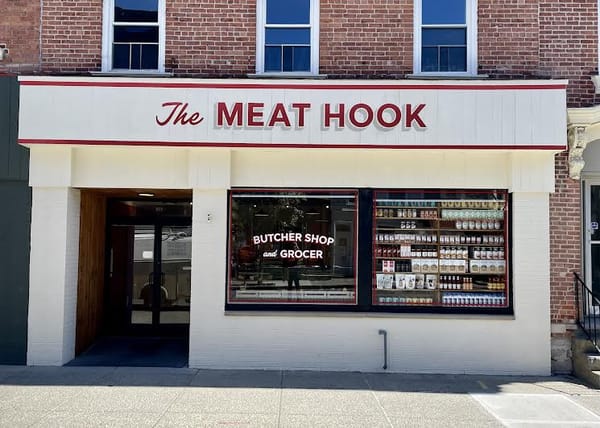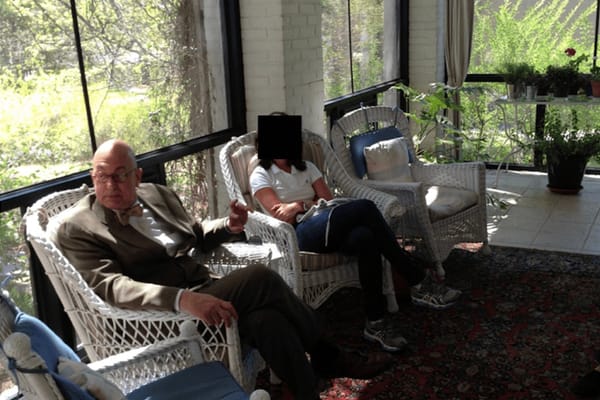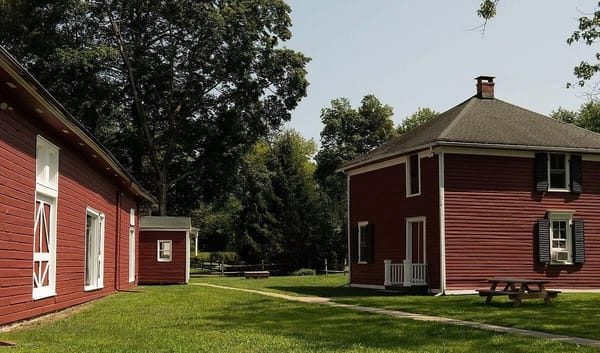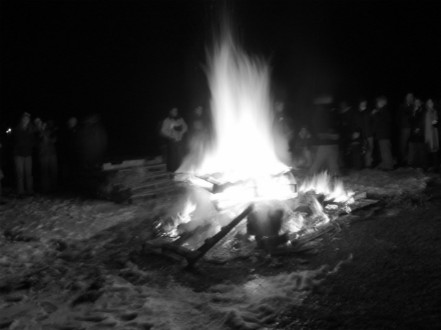
As the year enters its final days, many of us are frantically gearing up for our holiday rituals. But the staff of Sprout Creek Farm in Poughkeepsie, two of whom are nuns from the Society of the Sacred Heart, a socially conscious international order, are slowing down as the days grow shorter, readying themselves for what they consider a sacred — and joyous — winter tradition: their annual solstice celebration. Celebrating the shortest day of the year was a Druidic tradition in pre-Christian Europe, when surviving the winter meant calling the sun back into existence. Contrary to popular belief, it’s not about human sacrifice, which would certainly be an odd thing for an order of nuns to engage in, even symbolically (except perhaps in a Ken Russell film.) “The solstice is a way to take stock of what we have, and what we’ve done to prepare for future generations,” says Sister Margo Morris, executive director of Sprout Creek and one of its founding members. She believes it is crucial that we impose breaks and create ritual to remind us that life is more than getting, striving, and accomplishing. She sees the solstice, with its connection to past and present, darkness and light, as just the opportunity to do that.
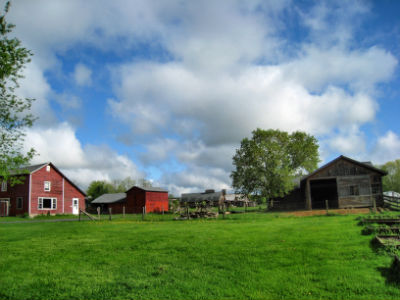
Sprout Creek is more than a farm and creamery, whose cheeses can be found at farmer’s markets and Whole Foods across New York State. The farm is the continuation of a project that began at an independent Catholic school for girls in Greenwich, CT, The Convent of the Sacred Heart, back in 1982. At the time, Morris, an English teacher and member of the Sacred Heart society, began to be deeply concerned about her students’ narrow perspective; a worldview she felt was based in privilege and a sense of entitlement. “They weren’t learning how to value anything,” she says, “and had no connection to the origins of the very simplest things they encountered in their everyday lives. How can you expect kids to value something if they can’t find the ground from which things originate?” A handful of school leaders shared Sister Margo’s concerns, and together they took over an abandoned farm on the school’s property. The idea was to transform it into an experienced-based learning center, but none of the three founders had any farm experience. Morris said they all approached the project with the thought: “We’re teachers, so we ought to be able to learn!”
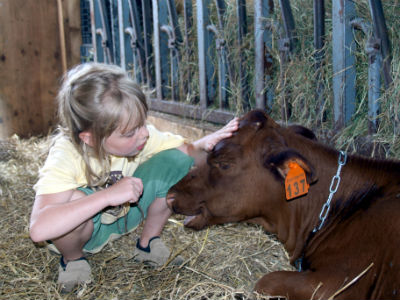
The school staff, students, and interested members of other Sacred Heart schools cleared the land, created a curriculum, and began farming and caring for the animals (some of whom were “dropped off” in the middle of the night). From the very beginning, the farm was more than a means of connecting the youth to the origins of things, using food as a unifying factor; it was also the means of engaging in social justice work. Three times a week, after a full day of school and an afternoon of milking cows and feeding goats, students would bring farm-raised vegetables to a soup kitchen in the Bronx. They didn’t just drop the veggies off — they cooked, served, ate, and spent time with the community members who came there. In 1987, the project was catapulted into a new realm — and a new state — when the executors of the estate of Elise Kinkead, a long-time Poughkeepsie resident, contacted Morris and her colleagues, offering to donate the 100-acre land and farm in Poughkeepsie now known as Sprout Creek.
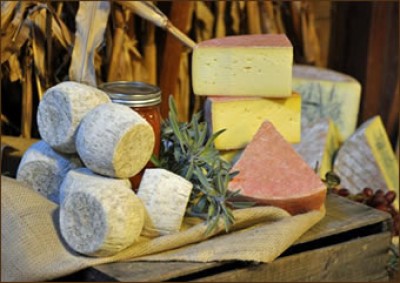
Since then, Sprout Creek Farm (named for the stream that runs through the land) has expanded, adding another 100 acres, a dormitory for year- round students, two additional barns, a creamery, a dairy, and a retail market. From a handful of farm animals, they now boast 60 cattle, 97 goats, 8 sheep, 100 chickens, and 20 wandering farm cats. Their cows’ milk cheeses range from the assertive, nutty, raw-milk Barat, aged for almost a year, to the younger Eden (as in the garden), a washed-rind cheese whose “paprika colored rind covers a semi-soft pungent paste of golden yellow,” quotes their website. Their most recent creation is another washed-rind cows’ milk cheese, Point of Origin, the result of a collaboration with Brooklyn’s Sixpoint Brewery (the cheese is basted with beer as it matures).
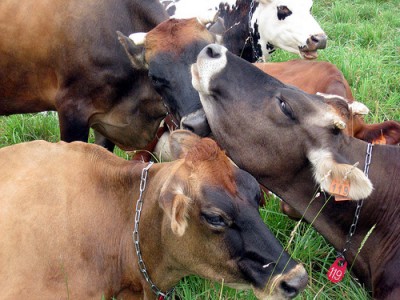
This extraordinary growth hasn’t removed the love and concern Morris and the other Sprout Creek staff have for each animal on the farm. Three years ago, on my first visit to the farm, Sister Georgie Blaeser, the education director, took me on a tour. One of the barns was empty (the cows were all out to pasture) except for one cow lying in her stall. She had quite recently fallen and seriously injured herself, and Georgie was concerned that she wasn’t again going to be able to get back on her feet. Blaeser's sadness was palpable. A few days later, Sprout Creek sent out an email in memory of the cow, who had to be put down, with words as loving as those usually reserved for people. Mentioning this event to Morris brought it all back. “Oh, that was terrible! All of our creatures are known and very dear to us. They all have names and their own unique personalities. Sometimes, I overhear a conversation and I can’t tell if staff are talking about people or the animals until some ridiculous name comes up and I realize they’re talking about an animal.” This spirit of love, reverence, community, and connection to history is what inspires the Sprout Creek staff to celebrate the solstice. Though honoring a pagan holiday may seem unusual for a nun and member of the Society of the Sacred Heart, Sister Margo and her colleagues don’t see anything contradictory in it. “None of us is unhooked from the transcendent,” she says. Morris sees the solstice as a way to look deeply into our past in order to be cognizant of who we are today. This year, on December 21, the shortest day and longest night of the year, Sprout Creek hosted an evening of songs around an outdoor bonfire, activities for children, prayers of gratitude, and a meal made with food from the farm. As Morris would say, everyone was welcome at the table. — Jovanina PaganoSprout Creek Farm34 Lauer Road Poughkeepsie, NY 12603 RSVP: (845) 485-8438



